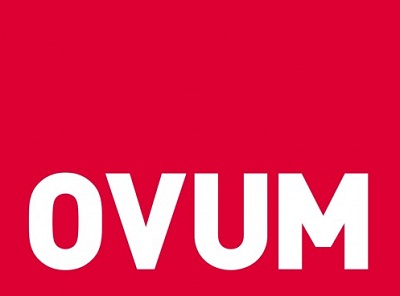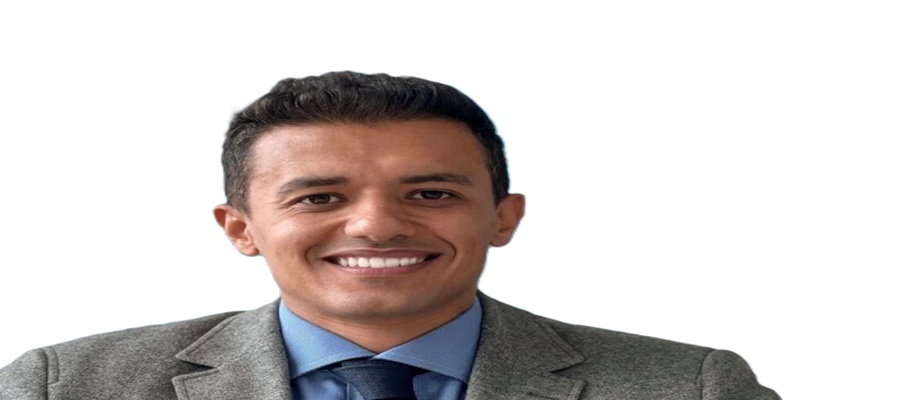Telecom
There Was Nothing Bombastic About MWC 2014 Says Ovum

Overall, there was nothing bombastic about Mobile World Congress 2014, according to Ovum’s analysts.
Ovum provides clients with independent and objective analysis that enables them to make better business and technology decisions.
Its research draws upon over 400,000 interviews a year with business and technology, telecoms and sourcing decision-makers, giving Ovum and the clients unparalleled insight not only into business requirements but also the technology that organisation must support. Ovum is an Informa business.
Based on its analyses of the MWC 2014 and on Industry, Communications, Broadband & Consumer services, Ovum admitted that there was a lot of talk about the content and services that runs on the broadband infrastructure.
However, it said that the Facebook/WhatsApp deal was a reminder of the gradual displacement of telcos from the content market, but there was still a lot of emphasis on service development aimed at propping up telcos’ top lines.
The strength of OTT players in messaging and now voice, challenges not only operators’ revenues, but also their role in the messaging and VoIP ecosystems.
Operators must either partner with OTT players to create more valuable, monetizable products for their customers, or they must be quick to launch their own services that leverage operator strengths such as billing, customer information, and the customer relationship to offer product bundles that help to increase loyalty and reduce churn.
According to Ovum, “the industry praised itself for connecting the world, noting that it contributed $336bn to public funds and supported 10.5 million jobs in 2013. The main call to action was for the industry to invest $1.7tn by 2020 to extend broadband connectivity globally. In the face of pricing and regulatory pressures facing telcos, this is going to be a tall order.
“As the delegates departed there was a sense of quiet satisfaction that the future of the industry is more assured than it seemed in 2013. Concerns still remain and many things could still go wrong, but as the CEO of Tele2 said to the CEO of WhatsApp when the latter announced plans to add voice to WhatsApp: “bring it on.”
Summary of the key themes from events and how Ovum sees this impacting the telecoms industry, also follows that unsurprisingly, Big Data was a key theme, but telcos were sanguine about balancing its use for new revenue opportunities or to improve customer experience with concerns about privacy.
“Orange said it is focusing only on how to use Big Data to improve services for its customers, while Deutsche Telekom called for greater clarity – especially in Europe – on the modalities for using or sharing customer data. Service providers now know (or perhaps they have always known) that to monetize their customers’ data they will need to earn those customers’ ‘Big Trust,’ a trust based on more explicit foundations than have so far existed”.
On network infrastructure, a key topic at MWC 2014 event was centralized RAN (C-RAN). This, Ovum said that, vendors demonstrated advancements in this technology despite the fact that its current market opportunities are limited to fiber-rich markets such as China and South Korea.
“Longer term – five years or more from now – the need for more capacity on the mobile network will push operators to make the fiber investments needed to expand the opportunity for C-RAN.
“5G, as expected, was also a popular topic, but what it will ultimately be remains very much an open question. Vendors are in some agreement that 5G won’t be available until 2020. Right now they are all just showing concepts around the technology, including combining multiple radio streams and higher orders of MIMO to increase throughput. But any notions about 5G are fairly immature at this point.
Ovum also analyses several other topics discussed at the events during MWC 2014, expressing disappointments in key areas.
—
Telecom
Spacecoin Secures Licenses to Roll Out Satellite Connectivity in Nigeria, Kenya

Spacecoin, US-based, has announced the signing of recent agreements with local authorities and operators to launch satellite connectivity pilot projects in Africa.

The initiatives, focused on Kenya and Nigeria, aim to serve areas where terrestrial networks remain limited or unavailable.
n Kenya, Spacecoin has obtained a transmission license from the Communications Authority, allowing it to test satellite-based solutions for connectivity and Internet of Things (IoT) monitoring, particularly in rural and peri-urban areas with limited internet access.
According to the Kenyan regulator, internet penetration remains below 50% of the population, despite mobile penetration exceeding 130%.
In parallel, the company is continuing operations in Nigeria under an existing license issued by the Nigerian Communications Commission (NCC).
This authorization supports initiatives aimed at delivering affordable broadband connectivity to isolated and underserved communities.
Spacecoin’s approach is based on a decentralized satellite network using nanosatellites in low Earth orbit (LEO).
Combined with blockchain-based protocols, this architecture is intended to offer more flexible and cost-effective connectivity services than traditional networks, while also enabling the integration of IoT solutions for a range of uses, from smart agriculture to infrastructure monitoring.
These projects are part of a broader strategy to help narrow Africa’s digital divide, where a significant share of the population still lacks access to reliable internet services.
Satellite technology is increasingly viewed as a complement to terrestrial infrastructure, particularly in hard-to-reach areas where deployment costs and geographic constraints remain high.
Beyond Africa, Spacecoin is also running pilot projects in Asia, working with local partners to test the viability of its model across different regulatory and geographic environments.
According to the company’s management, growing interest from regulators reflects a shift toward solutions capable of reaching populations that have long been excluded from internet access.
Telecom
AVEVA Names Khaled Salah Vice President for Africa to Drive Growth

AVEVA, a global leader in industrial software, driving digital transformation and sustainability, today announces the appointment of Khaled Salah, 37 years old, as Vice President of Africa.

Khaled Salah
In this new role, he will be responsible for about 30 employees to ensure the successful implementation of AVEVA’s growth strategy. Khaled Salah will report directly to Jesus Hernandez, SVP of the EMEA region.
A 15-years + career across different industries and domains
With a MBA in management from the Warwick business school, UK, and a master’s degree in engineering from Ain Shams university in Egypt, Khaled Salah is an active advocate for driving sustainable progress in the industrial sector. With Sustainability in mind, Khaled is keen on making a positive business impact, while fostering progress for people and the planet.
He started his career at Schneider Electric, in 2013 in the global supply chain and evolved through various roles such as Europe procurement and supply chain strategy Manager, and Global Commercial strategy Director for the industrial automation business. Khaled Salah has developed a strategic understanding of all those fields.
After 12 years in Schneider Electric, Khaled joined AVEVA in 2022 to lead AVEVA and Schneider Electric global strategic partnership, across all industries managing a team of 30 people.
He has led the introduction of new AVEVA software solutions to initiate and develop significant growth areas across all Schneider Electric verticals.
Ambitious plans for AVEVA in Africa
In addition to his current role as AVEVA and Schneider Electric partnership Vice-President, Khaled now takes over the management of AVEVA’s activities in Africa.
Jesus Hernandez, SVP of the EMEA region says: “Africa is a strategic region for AVEVA. In this major industrial market, customers, world leaders in the fields of Energy, Metal & Mining, Chemicals, and Water, are looking for AVEVA’s expertise to accelerate and drive their digital transformation and sustainability strategies, as well as their energy transition projects.
“Khaled Salah’s qualities of leadership in a global environment will benefit his team spread across 12 countries including Algeria, Morocco, Egypt, Kenya, Nigeria, and South Africa.”
Motivated by the prospect of capitalizing on the talent of his team to strengthen AVEVA’s presence in Africa in the years to come, Khaled Salah says: “Helping my team realize their professional potential is close to my heart.
“We will work together to support and accelerate the digital transformation of industries in Africa, in particular through CONNECT, our industrial intelligence platform, with the support of our ecosystem of partners. »
Telecom
Google Report: Nigeria Leads Global AI Adoption in Learning, Entrepreneurship

A Google-Ipsos report reveals Nigerians topping global AI usage at 88%, surpassing the 62% worldwide average, with sharp rises in education and business applications.

“Our Life with AI: Helpfulness in the hands of more people” shows 93% of Nigerians using AI for learning complex topics versus 74% globally, 91% for work assistance, and 80% for new ventures—nearly double the 42% global rate.
Taiwo Kola-Ogunlade, Google’s West Africa Communications Manager, stated: “Nigerians are creatively using AI to unlock opportunities for learning, growth, and economic empowerment, shaping their future with technology.”
Key findings highlight 91% viewing AI positively for learning access, 95% expecting benefits for students and educators, and strong optimism—80% excited versus 20% concerned, compared to global 53%-46% split. Frequent users show 90% excitement

 E-Financial2 days ago
E-Financial2 days agoHere Are Nigerian Banks That Have Secured Their Licences

 Telecom2 days ago
Telecom2 days agoMTN CEO Toriola Hails Nigeria’s Telecom Transformation at MIPAD

 E-Financial2 days ago
E-Financial2 days agoZenith Bank Top Nigerian Bank Pick Ahead of GTCO, AccessCorp

 News2 days ago
News2 days agoICPC Charges Ozekhome with Forgery, Corruption Over London Property

 E-Financial2 days ago
E-Financial2 days agoNigeria Processed $92.1Bn Crypto Transactions in 12 Months — PwC

 E-Financial2 days ago
E-Financial2 days agoHow Crypto Criminals Stole $700m from People – often Using Age-Old Tricks

 Telecom2 days ago
Telecom2 days agoLebara Launches Agent Registration Portal

 General News1 day ago
General News1 day agoCybersecurity Firm Detects a Wave of Crypto Phishing Following BlockFi Bankruptcy


























